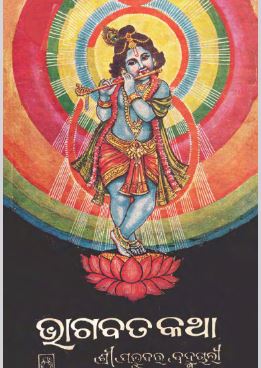Bhagabata Katha, written by Prabhudata Brahmachari and translated by Upendra Nath Hota in 1983, is a profound piece of prose that explores the teachings of the Bhagavad Gita and the lives of various mythological characters. This book offers readers a magnificent insight into ancient Indian philosophy and spiritual wisdom.
The Bhagabata Katha, also known as the Srimad Bhagavatam, is a sacred scripture that narrates the story of Lord Krishna, his life, teachings, and profound miracles. The book is divided into twelve cantos, each depicting different aspects of Krishna’s divine play on earth. It is considered one of the most influential and brilliantly composed works of Indian literature, capturing the essence of devotion, love, and righteousness.
Prabhudata Brahmachari’s rendition of the Bhagabata Katha in v.08 brings to life the teachings of the scripture, making it accessible to readers of all backgrounds. The language used is simple and lucid, allowing readers to easily connect with the profound concepts presented within the text. Brahmachari’s narration is both captivating and insightful, guiding readers through the layers of meaning embedded in these ancient tales.
Upendra Nath Hota’s translation of this revered scripture further enhances the accessibility of the text. Hota’s translation captures the essence and spirit of the original Sanskrit version, offering readers a seamless and authentic reading experience. His deep understanding of the subject matter shines through in his translation, preserving the profound wisdom of the Bhagabata Katha.
The prose in Bhagabata Katha, v.08, beautifully depicts the stories of various mythological characters such as Manu and Barah. The story of Manu, the first human being and the progenitor of mankind, highlights the importance of righteousness, duty, and moral values. Manu’s struggles and dilemmas serve as a reflection of the challenges faced by humanity, imparting timeless lessons on righteousness and the consequences of one’s actions.
The narrative of Barah, the boar incarnation of Lord Vishnu, signifies the divine’s commitment to protecting the universe from the clutches of evil. Through Barah’s tale, the book delves into the concept of avatar, where the divine takes on various forms to restore cosmic balance and annihilate darkness. The story emphasizes the significance of faith, devotion, and surrendering oneself to a higher power.
In conclusion, Bhagabata Katha, v.08 By Prabhudata Brahmachari and translated by Upendra Nath Hota, published in 1983, is a remarkable piece of prose that offers readers an enchanting journey into the world of ancient Indian mythology and spiritual teachings. The book’s eloquent narration and exceptional translation make it accessible to a wide range of readers, allowing them to delve into the profound wisdom of the Bhagabata Katha. By exploring the lives of characters like Manu and Barah, the text imparts invaluable lessons on righteousness, faith, devotion, and the divine’s unwavering commitment to preserving cosmic balance. This book is a treasure trove of spiritual wisdom, enriching the lives of those who delve into its pages.
Books Info
| Books name | Bhagabata Katha-7 |
| Author | Prabhudata Brahmachari; Nilamani Misra, Tr. |
| No Of pages | 146 |
| Publisher | Cuttack Students Store |
| Publication | 1983 |
| Printed At | Kalyani Prints |
| Distributor | NA |

